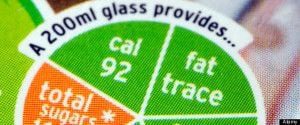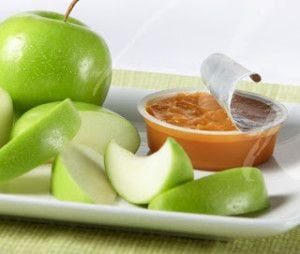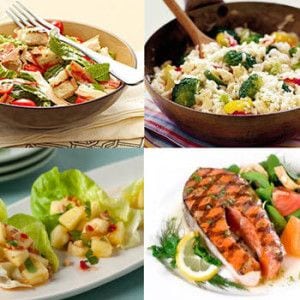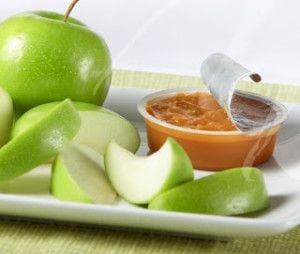 To lose weight, the energy intake from food must be less than the energy output of your body. Many diets attempt to achieve this through giving rough guidelines on “portion sizes”. However, the best way to achieve the calorie deficit is through calorie counting. It is only when you count your calories that you know for sure how much energy from food you have consumed. Counting portions may actually prevent you from losing weight because, quite simply you may be consuming too many calories and not know it!
To lose weight, the energy intake from food must be less than the energy output of your body. Many diets attempt to achieve this through giving rough guidelines on “portion sizes”. However, the best way to achieve the calorie deficit is through calorie counting. It is only when you count your calories that you know for sure how much energy from food you have consumed. Counting portions may actually prevent you from losing weight because, quite simply you may be consuming too many calories and not know it!
How Many Calories do you need each day?
As a general rule of thumb, the average adult requires 2000 calories per day (for women) and 2500 calories per day (for men) in order to maintain their current level of bodyweight. These should come from a balanced diet with foods from all the food groups. To lose weight, you should start by eating 300 calories less than your maintenance amount, then adjusting from that benchmark based on whether you lose weight or not. How to keep track of calories.
Although it may seem a chore at first, counting calories allows you to see exactly how much food you have consumed so that you know whether you are on track with your diet or not. You can keep track of your calorie intake in a small notebook or on a spreadsheet on your computer. How you do it doesn’t really matter, so long as you do actually keep track of your calories. To find out how many calories your food contains, use a calorie counting book such as Corinne Netzer’s “Complete Book of Food Counts”, or “The Calorie, Carb and Fat Bible 2009” by Lyndel Costain, Juliette Kellow and Rebecca Walton. Make it a habit to record everything you eat and calculate the total calorie intake at the end of each day. From this you will be able to see if you have done enough each day to lose weight, or whether you have made a mistake and indulged too much! You will also be able to check that you are not eating too many calories in any one sitting.
Don’t leave it to chance by counting portions, get yourself a book of calorie counts and know for sure that you are going to lose weight!
 How many times have you heard that, the average female requires 2000 calories per day to maintain her weight at a constant level? You’ve probably heard this many times, as it is a useful benchmark when talking in terms of diets and losing weight.
How many times have you heard that, the average female requires 2000 calories per day to maintain her weight at a constant level? You’ve probably heard this many times, as it is a useful benchmark when talking in terms of diets and losing weight.
We all know that if we consume above the 2000 calorie per day benchmark we are at risk of gaining weight. However, it may come as a revelation to you that not only is it important to keep control of your daily and weekly calorie intake, but to also control the amount of calories you consume at any one sitting.
For instance, Let’s say for arguments sake that you decided to eat only once in the day, ingesting all 2000 calories at one sitting (thus not eating for the rest of the day). First of all, this would send an unmistakable starvation signal to your body, and thus when the body gets fed (at the one daily meal), it will be predisposed to store fat to build up its energy stores. However, the big thing to realize here is that at any one sitting, if you ingest more calories than your body has need for, the excess will go into fat storage. Therefore overeating at any one meal will trigger fat storage. You cannot reverse this by eating a little less at the next meal to “balance the day out”, the damage has already been done!
This is one of the reasons why you hear so much about eating six small meals per day as opposed to two or three large ones. Eating the six meals per day enables you to consume all of your energy and nutrient requirements whilst keeping the calorie count of any meal at an acceptable level. If you divide 2000 calories by six, this averages out to 333 calories per meal.
Knowing that portion control is one of the big keys to weight loss explains to a certain extent why many people think that their calorie consumption is low, yet struggle to lose weight – they may well be eating too few meals per day, which is often the case with modern hectic lifestyles. However, you can achieve this way of eating by planning ahead and taking your meals with you in plastic containers and a cooler bag.
If you need to lose weight, pay attention to not only your calorie intake per day, but also your calorie intake per meal!
Calories And Diet Weight Loss
Calories and Weight Loss
 Fat loss information is all around us and the term “calorie” is frequently mentioned in books, articles and weight loss programs.
Fat loss information is all around us and the term “calorie” is frequently mentioned in books, articles and weight loss programs.
However, it is rarely explained exactly what a calorie is and why it is an important number to know in order for you to reach your fat loss goals.
The technical definition of a food calorie (kilocalorie) is the amount of heat required to raise 1 kilogram (1 litre) of water 1 degree Centigrade. A calorie is a measure of heat energy. As our bodies burn the food it digests, a certain amount of heat (energy) is released depending on the type of food. This may sound complicated and you may be tempted to give up reading and go find a Celebrity Diet Book but keep reading – Calories are the number one key to fast and permanent weight loss!
Lose Weight by cutting calories
Excess calories over and above the body’s energy requirements are stored as fat. To lose fat, you need to consume fewer calories than your body requires. When this happens, the body will turn to its fat stores for energy. No doubt you have heard this explained countless times in a number of different ways, but it is a point worth mentioning as it is an irrefutable law of physics that you will not lose weight unless you are in a calorie deficit!
If you consume more calories than your body requires, the excess calories will cause you to gain fat. Once you have gained this fat, it will stay in storage until such a time comes that the body requires it for energy (i.e.; a calorie deficit).
For example, if you usually consume your daily calorie requirement (for example – 2000 calories), and then one week you consume 2600 calories per day, it is likely that you would gain somewhere around a pound of fat which would go into storage. To lose this extra pound, it is not enough to simply go back to eating 2000 calories per day – the fat would remain in storage and, if you continued to consume more calories than you require you would continue to gain weight. The only way you can lose this weight is to create a calorie deficit by consuming less calories than your body requires, thus forcing it to burn energy from fat stores.
You can also tryout some weight loss pills listed. Many pills are made from herbs like hoodia and are pretty helpful. It all depends on how quickly you want to loose weight actually.
Fad Diets don’t work long term
Any diet that claims to enable the user to lose fat without reducing calories is a complete misnomer. Recent fashions such as high protein diets often succeed because eating a lot of protein makes it difficult to consume a lot of calories. However, the long term health risks of a high protein diet are open to continued debate.
To lose weight, you must reduce the number of calories you eat by selecting sensible food choices that provide your body with the nutrients it requires whilst reducing your calorie consumption enough in order for you to reach your weight loss goals!



